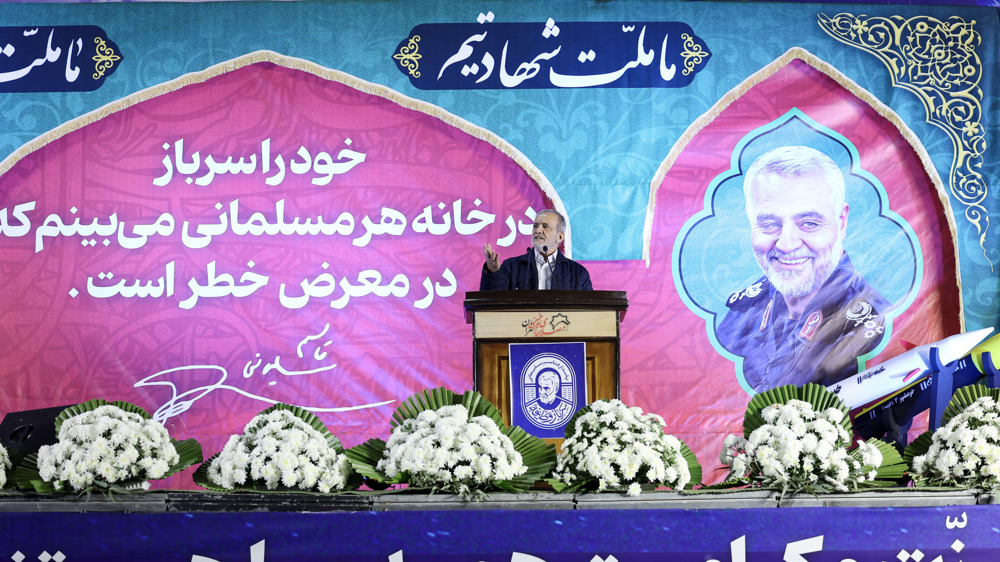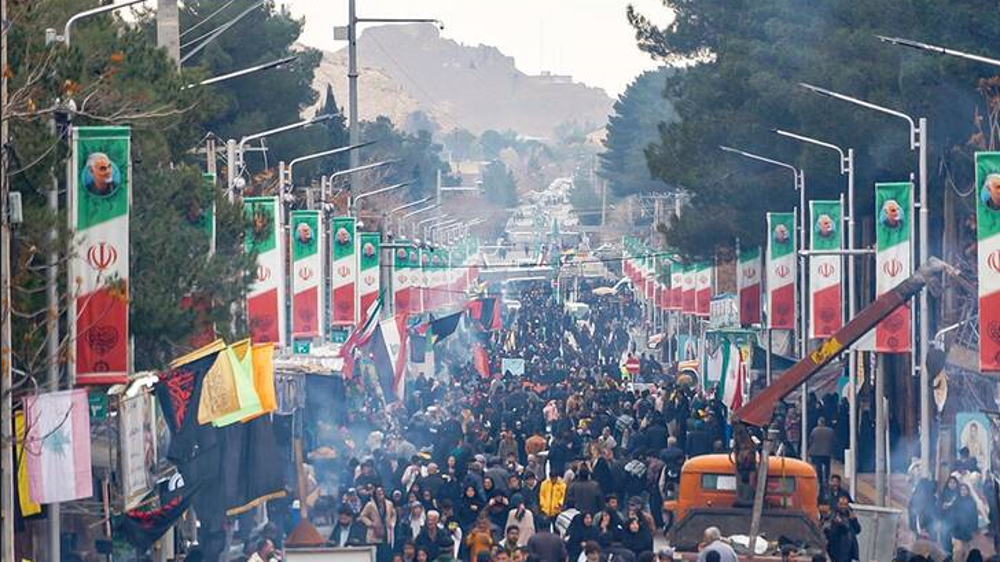Palestine burning in fire of Arab rulers’ treason: Iran
Iran says half a century after Israel’s arson attack on the al-Aqsa Mosque, "the innocent Palestine" is still burning in the fire of Israeli incursion and some Arab rulers’ treason.
“Today is the World Mosque Day. It’s been 51 years since Zionist extremists set fire to al-Aqsa Mosque – the first qibla of Muslim people, a common heritage of human beings, and a symbol of unity among all monotheistic religions,” said Iran’s Foreign Ministry spokesman Saeed Khatibzadeh.
“The innocent Palestine is still burning in the fire of the Zionist regime’s impudence and incursion and the treason of certain Arab rulers,” he added in a Friday tweet.
The tweet was issued on the 51st anniversary of Zionist extremists’ arson attack on the al-Aqsa Mosque.
On August 21, 1969, the mosque was set on fire by an Australian settler in coordination with Israeli officials and military forces. The fire gutted the southeastern wing of the mosque.
The World Mosque Day has now turned into an annual occasion when Muslims around the world highlight the importance of the al-Aqsa Mosque as the third holiest site of Muslim world.
This year, a controversial deal between the United Arab Emirates and the Israeli regime to normalize their bilateral relationships has outraged Muslims around the world.
Last week, Israel and the UAE announced in a joint statement, issued by the White House, that they had agreed to the full normalization of relations, sparking anger among Palestinians and supporters of the Palestinian cause against Israeli occupation.
As a result of the deal, which is what Iran’s Foreign Ministry spokesman referred to as “treason”, anger is boiling in the Middle East and elsewhere, with Palestinian leaders describing it as a “stab in the back” by an Arab country.
Palestinian President Mahmoud Abbas, on Tuesday, railed against the United Arab Emirates — which long portrayed itself as an advocate of the Palestinian cause — for stabbing the Palestinian nation in the back by making peace with Israel, warning other Arab countries not to follow in Abu Dhabi’s footsteps.
Abbas reminded the Arab countries that based on the 2002 Arab Peace Initiative any Israeli normalization should come after an agreement is reached between the Palestinians and Tel Aviv, and not the other way around.
“Some countries have begun moving, both openly and in secret…this is rejected, and we the Palestinians will continue to absolutely reject this, no matter which country does this. You must respect the decisions on which you have signed off,” he said.
Israeli regime strikes buildings in Lebanon’s south
Suicides among Israeli forces surge amid Gaza war
Gen. Soleimani turned threats into opportunities and fortified resistance axis
Houthi: General Soleimani thwarted US conspiracies in West Asia
Islamic Jihad prevents Israeli captive from taking own life
Pezeshkian: We will continue path of Gen. Soleimani with power
Israel forces make incursion into Lebanese town, torch homes
Israeli settlers raid al-Aqsa Mosque amid restrictions on Muslims











 This makes it easy to access the Press TV website
This makes it easy to access the Press TV website